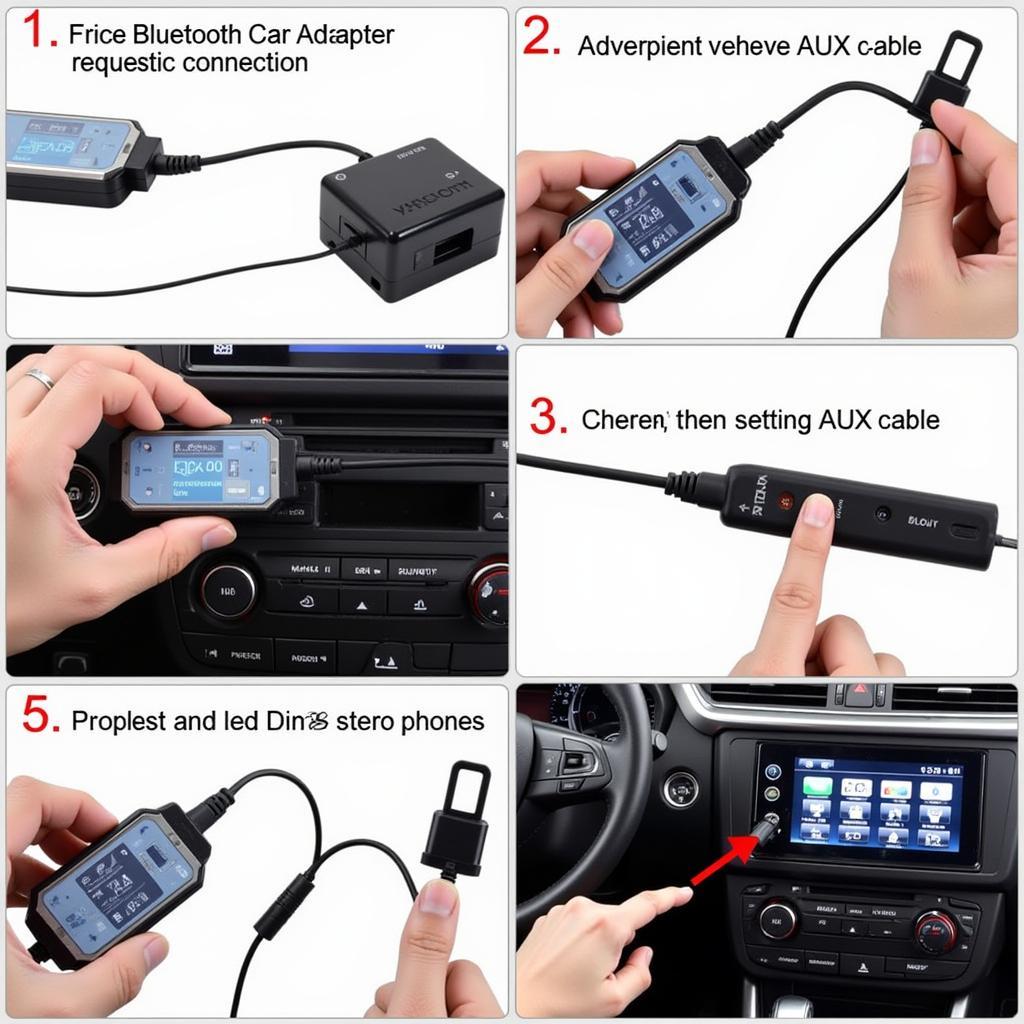The parking brake warning light, often a red circle with a “P” or an exclamation mark inside, is a crucial indicator on your car’s dashboard. It typically illuminates when the parking brake is engaged, signaling that your vehicle is immobilized. However, if this light stays on or flickers even after you’ve released the parking brake, it signals a potential issue that needs your attention.
Decoding the Parking Brake Warning Light
Understanding why your parking brake warning light is on when it shouldn’t be can be confusing. Let’s break down the most common reasons:
1. Parking Brake Not Fully Released
This might seem obvious, but it’s often the culprit. Sometimes the parking brake might not fully disengage even when you think it is. Try releasing and re-engaging the parking brake a couple of times. If the light goes off, you’ve solved the problem.
2. Low Brake Fluid Level
One of the most common reasons for the warning light to stay on is a low brake fluid level. Brake fluid is the lifeblood of your braking system. When the fluid level drops, it can trigger the parking brake warning light.
Expert Insight:
“Many car owners overlook the importance of regular brake fluid checks. Remember, brake fluid is hygroscopic, meaning it absorbs moisture over time, reducing its effectiveness.” – David Miller, Senior Automotive Engineer
3. Faulty Brake Fluid Level Sensor
Your car has a sensor in the brake fluid reservoir that monitors the fluid level. If this sensor malfunctions, it can send a false signal, causing the warning light to illuminate even when your brake fluid is at an adequate level.
4. Worn-Out Brake Pads
While not directly related to the parking brake, worn brake pads can sometimes trigger the warning light. This is because the brake pad wear indicator can be linked to the same warning light system.
Expert Insight:
“Don’t ignore the parking brake warning light, especially if it’s accompanied by a squealing noise when braking. This could indicate critically worn brake pads requiring immediate replacement.” – Sarah Chen, Certified Automotive Technician
5. Electrical Issues
Like any other electrical system in your car, the parking brake warning light circuit can experience issues. A short circuit, a blown fuse, or even a faulty dashboard warning light bulb can cause the light to behave erratically.
What to Do When Your Parking Brake Warning Light Comes On
- Don’t Panic: First and foremost, stay calm.
- Check Your Parking Brake: Ensure the parking brake is fully released.
- Inspect Brake Fluid: If possible, safely park your car and check the brake fluid level in the reservoir. If it’s low, carefully add the correct type of brake fluid.
- Seek Professional Help: If the light persists, it’s crucial to have your car inspected by a qualified mechanic as soon as possible.
Ignoring a persistent parking brake warning light can lead to further damage and compromise your safety.
FAQs:
1. Can I drive with the parking brake warning light on?
It’s not advisable. While you might be able to drive for a short distance, driving with a potential brake issue can be dangerous.
2. How often should I check my brake fluid?
It’s good practice to check your brake fluid level at least once a month and have it flushed and replaced every 2 years or as recommended by your car manufacturer.
3. Can I top up my brake fluid myself?
Yes, you can, but make sure you use the correct type of brake fluid specified in your car’s owner’s manual.
4. How much does it cost to fix a parking brake warning light issue?
The cost can vary greatly depending on the underlying cause. A simple brake fluid top-up will cost significantly less than replacing a faulty brake fluid level sensor or worn-out brake pads.
5. Is a flashing parking brake warning light serious?
Yes, a flashing warning light usually indicates a more serious problem requiring immediate attention.
Conclusion
Understanding your car’s warning lights is essential for safe and responsible driving. The parking brake warning light is no exception. By heeding its message and taking appropriate action, you can ensure the optimal performance of your braking system and, most importantly, your safety on the road.

